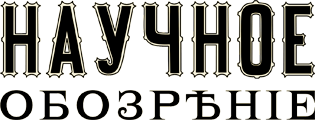Scientific journal
Научное обозрение. Медицинские науки
ISSN 2500-0780
ПИ №ФС77-57452
ISSN 2500-0780
ПИ №ФС77-57452
MEDICAL AND SOCIAL ASPECTS OF OCCULT BELIEFS PROFESSIONALS INVOLVED IN ASSISTING MENTAL HEALTH CARE
Anonymous survey method (belief in the reality of occult forces impact on human, test yourself occult phenomena and their healhing potential) surveyed professionals involved in the assisting of mental health care: 73 psychiatrists, 158 nurses and 256 people out of a population of similar age (from 21 to 75 years). Found that occult beliefs are widespread in the population (34–51%), and among the professionals involved in the assisting of mental health care (16–48 %). Risk factor for the formation of beliefs in occult practices (p<0,001), reg ardless of gender of the respondent, age and level of education is the early childhood experiences appeal to the representatives of occultism parent-initiated with various health problems (psychosomatic). Identified and described two types of occult beliefs: conformal (compromising, by inertia) and archaic (force «demons» or the unknown forces of nature). The issue of increasing the level of scientific outlook and the prevention of occult beliefs are discussed.
 science-review.ru
science-review.ru